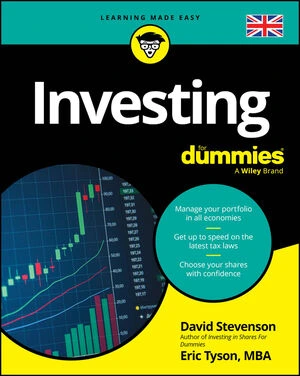In the United States, financial markets get general regulatory oversight from two government bodies: the Securities and Exchange Commission (SEC) and the Commodity Futures Trading Commission (CFTC). Both have similar goals: to ensure that investors and traders have adequate information to make decisions and to prevent fraud and abuse.
Neither body has complete authority over the markets, though. Much of the responsibility for proper behavior rests in self-regulatory organizations that brokerage firms join, and to the exchanges themselves. It’s not straightforward, but the overlap among these organizations seems to ensure that problems are identified early on and that the interests of companies, brokers, and investment managers are fairly represented.
Apart from the organizations listed here, exchanges have their own regulatory groups that ensure that their traders comply with exchange rules and rules of other organizations. The exchanges also monitor trading in order to look for patterns that might point to market manipulation or insider trading.
Stock and corporate bond market regulation
The stock and corporate bond markets are the most prominent. Regulators are active and visible because these markets have a relatively large number of relatively small issuers. There’s not one government issuing currency — there are a whole bunch of companies issuing shares of stock.
The U.S. Securities and Exchange Commission (SEC): The SEC is a government agency that ensures that markets work efficiently.
Financial Industry Regulatory Authority (FINRA): FINRA represents and regulates all stock and bond brokerage firms and their employees. More than 4,750 firms are members, with 634,000 employees registered to sell securities. It also administers background checks and licensing exams, regulates securities trading and monitors how firms comply, and provides information for investors.
Treasury bond market regulation
Treasury bonds are slightly different from corporate bonds. They're issued by the U.S. government, so regulation is handled by the Treasury Department’s Bureau of the Public Debt, with additional oversight from the SEC.
Derivatives market regulation
Derivatives markets have their own regulatory bodies, but they match the format and hierarchy of stock and bond market regulation. The organizations may not be household names, but their functions will seem familiar.
Commodity Futures Trading Commission (CFTC): The CFTC is a government agency that oversees market activities in agricultural and financial commodities. It ensures that the markets are liquid and that both parties on an options or futures transaction are able to meet their contractual obligations. It also provides oversight to the markets by ensuring that the exchanges and self-regulatory organizations have sufficient regulations in place, and that those regulations are enforced.
National Futures Association (NFA): The NFA regulates 4,200 firms and has 55,000 employees who work on the different futures exchanges. It administers background checks and licensing exams, regulates futures trading and monitors how firms comply, and provides information for investors.
Trading in options on stocks is regulated by the SEC and FINRA, but trading on options on futures is regulated by the CFTC and the NFA. As the lines between derivative products blur, you may find a lot of overlap, and many in the industry predict that the SEC and CFTC will merge at some point.
Foreign exchange (forex) regulation
Because it's the largest, most liquid market in the world, many day traders are taking up trading in foreign exchange, or forex. But here’s the rub: These markets are not well regulated. There’s nothing to stop someone from exchanging U.S. dollars for Canadian dollars; tourists do it every day, often at a hotel desk or retail shop. There’s no paperwork, no hassle — and no oversight.
Oversight isn’t necessary for someone at a convenience store buying a tube of Smarties with U.S. bucks and getting Canadian loonies in return. Unfortunately, this has allowed some firms to misrepresent forex trading to day traders, causing some day traders to get badly burned.
Options and futures on currency: Most currency is traded in the spot; traders exchange one currency for another at the current exchange rate. The spot market is not regulated. But many trade currency using options and futures. Options and futures on currency are regulated as derivatives through the CFTC, the NFA, and the relevant futures exchanges.
Banks and oversight: Banks are responsible for most forex trading, and banks are heavily regulated. This means that the Federal Reserve Banks and the U.S. Treasury Department are paying attention to forex markets, looking for evidence of manipulation and money laundering.






